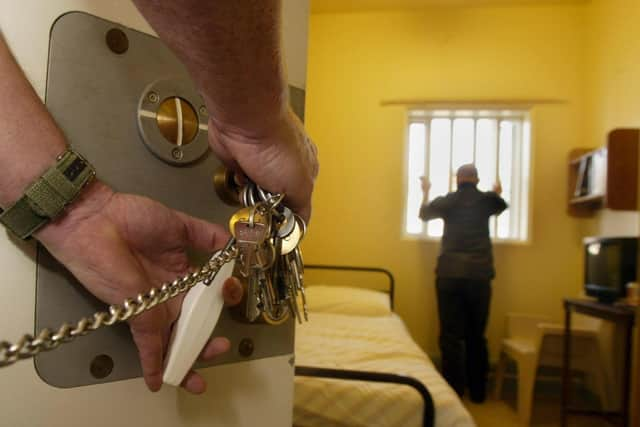Scotland's prison officers are facing significant danger from organised crime gang members – Teresa Medhurst
Often reluctant to take the limelight and quick to say they are “just doing their job”, prison officers are a unique group of individuals. So today’s ‘Hidden Heroes Day’ gives us an important opportunity to recognise the work they and the UK’s prison and youth justice services do daily to keep us all safe.
Prison officers wear many hats and demonstrate many skills; they are everything from mentors to counsellors, first aiders to teachers. Most of all, they are role models, sometimes the first and only one an individual in our care has had.
Advertisement
Hide AdAdvertisement
Hide AdThey provide guidance and practical help to motivate and support some of our country’s most marginalised individuals, to quite literally change their lives. It’s a demanding and complex role but it is prison officers, more than anyone else, who really make a difference to the lives of those in our care.
I have worked for the Scottish Prison Service for more than 30 years and feel privileged to have had so many dedicated colleagues. I have always known the men and women working for the SPS are the reason for its success. The strength of the positive relationships that exist between staff and those in our care has played a significant role in maintaining the safety and stability of our prisons.
However, as a service, we are now faced with increasing challenges in relation to the management of a population that’s rapidly increasing and also far more complex. An important part of this increased complexity is the growing proportion of individuals affiliated to serious and organised crime groups. That represents an important success for Police Scotland, and all partners in the criminal justice system, but their presence also poses a significant danger to our staff that should not be under-estimated.
And it is not just organised crime that presents added challenges to managing our population. There is a growing proportion of people who have to be accommodated separately due to their legal status (remand or convicted), sex, age, or offending history, for example, those found guilty of sexual offending. This complexity is further illustrated by the increase in demand for health and social care services across the prison estate in recent years.
Why is this important? Because when a prison is full beyond its design capacity, this increasingly restricts our staff’s ability to do the quality work that supports people’s personal development and rehabilitation, reducing the chances of a successful reintegration into the community upon liberation.


In spite of this immense challenge, our staff continue to pull together and do their jobs with good humour, compassion and dedication; for that, I say a genuine, heartfelt “thank you” to them all.
I’m extremely proud to lead the SPS and want the public to have a greater understanding of what we actually do. Prisons are, by design, relatively ‘hidden’ and I am therefore determined to increasingly promote and share some of the innovative and ground-breaking work that happens in every one of them.
Prison officers are highly skilled public servants doing difficult and demanding work on behalf of us all. They provide support to the most vulnerable, direction to the most challenging, and inspiration to those without hope. If anyone merits the term ‘Hidden Heroes’, it is them.
Teresa Medhurst is chief executive of the Scottish Prison Service